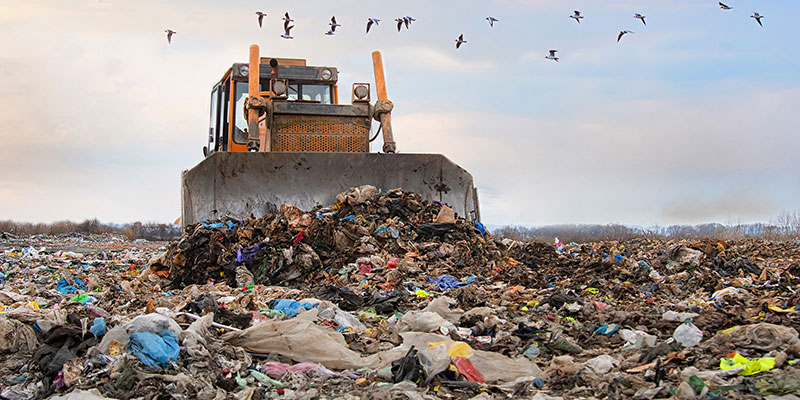Sustainable wastewater management not only plays a significant role in diverting waste from landfills like this one, but it can also help address other sustainability challenges.
Efficient wastewater management can improve sustainability and conserve resources
The Zero Waste International Alliance defines zero waste as the “conservation of all resources by means of responsible production, consumption, reuse, and recovery of products, packaging, and materials without burning and with no discharges to land, water, or air that threaten the environment or human health.” It’s a sustainable approach to managing the life cycle of products and materials, as well as waste products generated, from production to end of life.
While zero waste can be difficult to quantify and is considered an ambitious long-term goal, zero waste to landfill is a more specific and immediate goal. It can be independently verified by organizations such as The Carbon Trust. To achieve zero waste to landfill, at least 99% of waste generated must be diverted from landfills through recycling, reuse, composting, or energy recovery.
Changing the Way We View Waste
Achieving this goal requires a shift in the way we perceive waste, viewing byproducts as valuable resources rather than material to be sent to a landfill. It also requires a redesign of the linear industrial system into a circular system that mimics nature, where the byproduct of one system is used by another to create harmonious balance. By changing the way we look at waste, materials can be recycled into nature or reused for other industrial processes.
Helping accomplish this is sustainable wastewater management. Not only can it play a significant role in diverting waste from landfills, but it can also help address other sustainability challenges. A recent study found that sustainable wastewater treatment could help achieve 11 of the 17 global sustainable development goals (SDGs).
Sustainable wastewater management could help increase water availability, improve global health, convert waste to energy, and reduce the impact that wastewater has on the environment.
Treating Water to Be Used Again
Reusing wastewater reduces the disposal costs associated with discharging it and sending sludge to landfills. With water scarcity increasing globally, industrial and municipal wastewater is rapidly becoming a valuable resource that can be reused, providing a sustainable source of water for irrigation or for industrial or municipal applications. It can also recharge aquifers or restore and replenish wetlands and other aquatic habitats.
Fluence offers advanced water reuse solutions. One solution is anaerobic membrane bioreactors for the efficient concentration of solid digestate, making them well-suited for the treatment of industrial wastewater. Another solution is packaged membrane aerated biofilm reactors (MABRs), which are well-suited for the treatment of municipal wastewater. MABR technology reduces energy consumption by up to 90%, significantly cutting operating costs and contributing further to net zero goals.
Waste-to-Energy’s Role in Zero Waste to Landfill
As another way to keep waste out of landfills and waterways, organic-rich wastewater effluent can be used as feedstock in anaerobic biodigesters that convert organic waste to energy. The biogas produced can be used to power machinery on-site, reducing dependence on outside sources of energy as well as carbon footprint.
The anaerobic method produces a digestate that can be safely used on agricultural land as a soil enhancer, reducing sludge by up to 70% compared to conventional treatment.
Fluence’s team of water and wastewater experts can design water reuse and waste-to-energy solutions for a wide range of industries to help meet zero waste to landfill targets. Contact us to learn more about the solutions we offer and how we can help you meet your goals.

